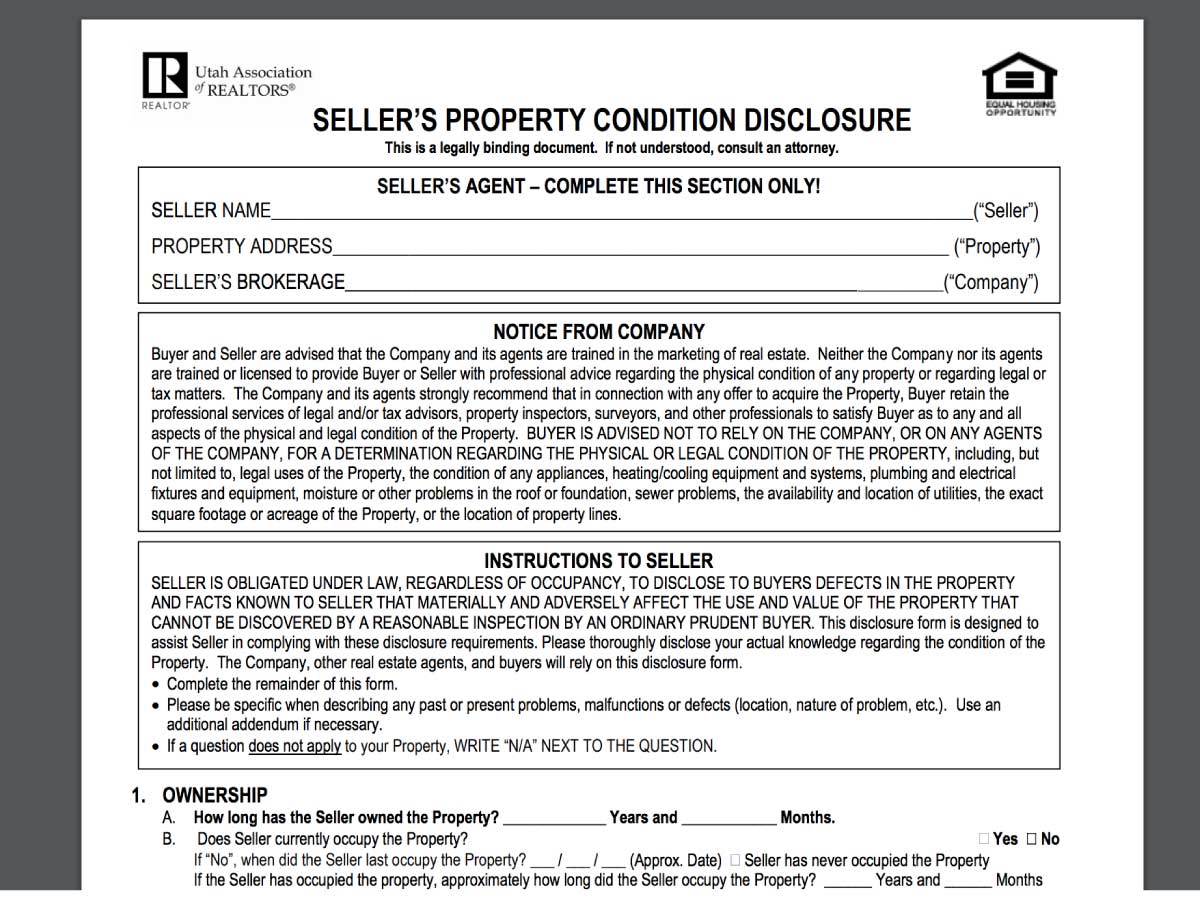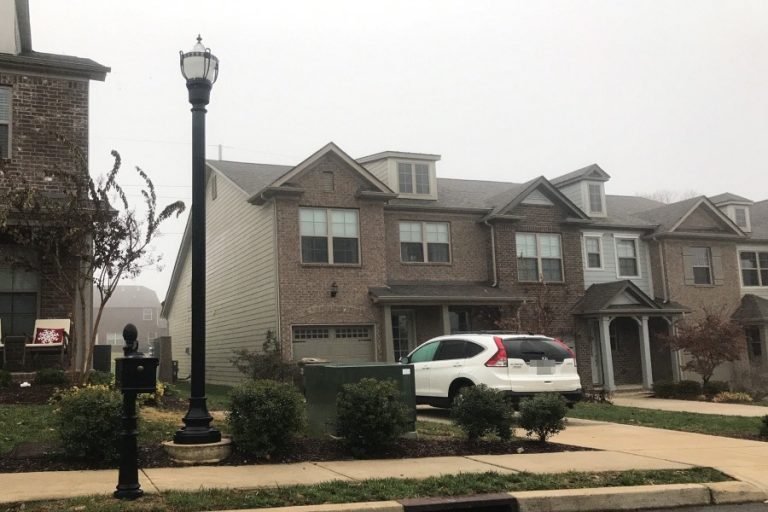What Are Real Estate Disclosure Laws?
When a real estate transaction is taking place, the details of the transaction, especially the agreed upon price for the property, are based upon assumptions made by the buyer regarding the condition of the property being purchased. It can be easy for the seller to hide from the buyer specifics about the piece of real estate being offered for sale that are pertinent to the transaction, and to the buyer’s ultimate decision about how much he is willing to pay for the property and even whether he is interested in purchasing the property at all.
Real estate disclosure laws have been created to protect buyers from making purchasing decisions about real estate without important information (or, worse, with the wrong information) pertaining to the real estate being purchased.
Real estate disclosure laws (and the disclosure obligations of property sellers associated with those laws) vary from state to state. After providing some education about how real estate disclosure laws work, I’m going to address the most common elements of property disclosures and then give you the resources you need to find out what your obligation is as a seller, or what your rights are as a buyer, in your specific state.
Note: in this article, our discussion of real estate disclosure laws is focused on the condition of the property involved in the transaction. There is another context for disclosure laws that deal with the relationship of a real estate agent or realtor and a prospective seller or buyer of real estate.
What Are The Most Common Real Estate Disclosures?
Most states include a common set of features affecting the value of the property in their disclosure laws. Most disclosure statements are long enough and complicated enough that it’s important for you to either have help (usually a real estate agent or an attorney) or to make sure you are familiar enough with the disclosure form that you sign off on it only when you are sure that everything that could have significant impact is to your satisfaction.
Common Names of the Real Estate Disclosure Form
The name of the property condition form that is presented to the buyer from the seller varies by state, but they are usually called something along the lines of one of these common designations:
- Seller’s Real Property Disclosure Form (Nevada, for example)
- Seller Property Disclosure (Arkansas, for example)
- Seller’s Property Condition Disclosure (Utah)
The seller property disclosure form typically addresses the condition (including age and functionality) of the significant items that make up a piece of real estate, the things (like furnaces, water heaters, walls, foundation) that give it the value for which it is being purchased. Essentially, the seller disclosure statement is a way of saying, “Hello buyer, when you perceive the value of this home on this piece land to be x amount, you should know that the air conditioning system is 10 years old, there was some water damage due to a flood in the bathroom, etc.” This explanation of history and current status of the items described are critical elements of the home’s quality and therefore its value. Having this background available is a way to protect buyers from being surprised by defects in a property after they’ve gone through with a purchase. That’s why most state governments require a standard form to be completed by the seller and signed off on by the purchaser.

Here is a convenient list of several of the items normally found on a property condition disclosure form. Often, the disclosure form will include the age and condition (with known problems noted) of the following:
- Foundation
- Utilities
- Roof
- Water
- Sewer or septic
- Appliances
- Electrical
- Heating and cooling systems
- Sprinkler system
The disclosure document will also discuss any historical issues such as mold known to have been found in the house, termite (and other pests) issues, and any other hazardous conditions. The disclosure will often discuss obligations to homeowners associations.
Where to Find State Specific Real Estate Disclosure Forms
Many state governments publish their real estate disclosure forms on their websites. You can search your state’s .gov (e.g. utah.gov) website for the term “real estate disclosure” or something similar. State websites aren’t well known for their user friendliness, so you may have to try searching a few different phrases to find the form. It’s usually better to just search Google for the form by including site:[state website] at the beginning of your search. So if you wanted to search the Utah state website, you’d enter site:utah.gov real estate disclosure form, which would return the official Seller’s Property Condition Disclosure as the top result. (Google is so good at what they do, aren’t they?)
Some states do not publish their property disclosure forms. Instead, it may be available through the state association of realtors.
Possibly the easiest way (but not the cheapest) to get a copy of the form is to purchase it.
Prosperopedia has a relationship with US Legal Forms, who offers entire packages of forms for every state. You can purchase the property disclosure form from them as part of their real estate package.
Home Inspections Provide a Level of Insurance
Because people are often dishonest, and sellers of homes often are willing to be unscrupulous, or in many cases simply don’t know what all could be wrong with their homes, it’s always a good idea to have an independent home inspection done. Home inspections will normally cost $300-$500, and they provide an opportunity to have someone who is an expert walk through the home and check for problems. The information provided by a home inspection (done by a trusted and experienced professional) is almost always much more thorough than what the homeowner will provide. It’s also much less biased, because the inspector doesn’t have a conflicting interest in selling the home for the highest price possible.
If you forgo the home inspection in favor of simply trusting the seller (and their may be reasons to), you may have to come back later and address problems that could have come up during the inspection after you’ve purchased the home and later found the seller property disclosure to be inaccurate. Ultimately, a home inspection tends to be much less expensive than hiring a lawyer after you own the home.
Seller Liability When Things Go Wrong – Buyer Recourse For Dishonesty or Lack of Disclosure
Naturally, the existence of real estate disclosure laws means that there is recourse for a buyer after the transaction has been completed in situations where the seller of a property has not been forthcoming with describing the condition of the property.
States typically have laws that allow buyers of real estate to receive compensation in the case where a seller has sold them a “lemon”, including when they have either not disclosed a defect in the real estate, or if they were negligent about disclosing something that later turns up.
In the situation where a buyer of a piece of property realizes after becoming the proud new owner of a home that there are problems with the home that were not divulged in the disclosure forms, there are several different options for recourse. Often, especially with smaller problems that arise, the buyer can approach the seller personally or through their realtor, who should be their advocate and remain responsible for the transaction even for a time after the closing. If a seller is belligerent, the next logical step to seek compensation is usually through small claims court. For major issues that arise involving seller negligence or dishonesty, it is normally best for the buyer to hire (or at least speak with) an attorney to remedy the situation.
Statues of Limitations
It is commonly understood that a seller is not perpetually responsible for what happens to a piece of real estate (including appliances, fixtures, etc.) after it has been sold. Most states have a statute of limitations, a defined time period during which it is reasonable for a buyer to seek remedy against a seller.
Consult a attorney that specializes in real estate in your area if you are wondering whether your particular situation may be outside of the period defined by the statute of limitations.






